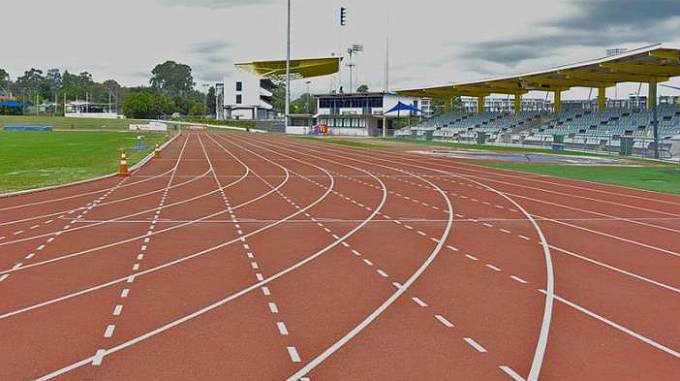Zim ground water depleting

Rumbidzayi Zinyuke
Senior Health Reporter
Zimbabweans are extracting ground water faster than the aquifers are replenishing so water tables are falling and wells or boreholes risk running dry.
While groundwater is managed to a extent, some wells and boreholes are dug or drilled without permission and even when permission is sought and granted, quite often more boreholes are drilled than the available supplies can support, so the person with the deepest borehole is the one who ends up with what water is available.
In older Harare suburbs where there are a lot of wells and boreholes, the effect of falling water tables can be seen easily. Wells that were quite prolific 70 years ago when dug are now totally dry, even if they were deepened at some stage, and a growing number of the older, and so shallower boreholes, that were once gushers are now dry holes unless they have been re-drilled to go a lot deeper.
Speaking at an environmental health seminar organised by the Médecins Sans Frontières (Doctors Without Borders) this week, an hydrogeologist with the University of Zimbabwe, Dr Richard Owen, said Harare was the most affected by ground water depletion.
“The resilience of ground water is a mixture of how big the aquifer is and how big it is. Harare, in fact most of Zimbabwe, does not have big aquifers. A study of the SADC underground water drought risk found that Zimbabwe and Harare in particular is the most vulnerable community as a result on very high dependence on ground water,” he said. “We are in trouble and running out of ground water. Every driller in the country will tell you as they drill in Harare the water table is deeper every day.” Dr Owen said the southern part of the city had quite shallow aquifers which made them more susceptible to depletion and contamination. A survey of 60 000 water points in the country had shown that only 30 percent were yielding water year round while 60 percent were already seasonal and run dry during the hot season.
“People are drilling boreholes to about 180 metres with no water. We actually have a whole corner of the city running out of water so we must not lose sight of how much water we have and it’s the quality,” said Dr Owen. There needed for a shift in the mindset of the people and the authorities in terms of preserving water and understanding the value of water.
“It takes a lot of mutual cooperation, thoughtfulness and intelligent resource allocation. It’s not just going to happen but we have to do something about it. That water scarcity is part of climate change, part of environment degradation and it needs cooperation,” he said.
While the basic requirement is that only as much water is pumped to the surface as seeps down to the aquifer from the rainfall, often some years ago although recent rainwater also moves down, some have suggested ways that this seepage can be enhanced.
Some suggest that the ground can be helped to naturally replenish it water supply by restoring carbon in the soil. They believe the use of chemicals on the soil could be contributing to the depletion hence a shift towards natural fertilisers could help restore nature’s cycle.
Nature’s cyclic path specialist Dr Ephrem Whingwiri said nature had a way of recycling water, carbon or gas.
“We are losing nutrients through burning of grass, deforestation, mining and even chemical fertilisers being applied to the soil. We know that more than 1 million tonnes of biodegradable waste in Zimbabwe is dumped at landfills and yet Zimbabwe’s soils are 70 percent sandy and lack organic matter.
“Carbon is being deposited at landfills but we need to relook that model and let nature take care of its waste. But more importantly we have to recognise the role of carbon. Carbon is key to so many factors like siltation and water conservation,” he said. Harare City mayor Jacob Mafume said the growth in the city’s population coupled with lack of new surface water sources.
“We need to harmonise water management and see how it works. Zimbabweans believe a green lawn is necessary and pour copious amounts of water on it so we have lots of wasted water. We need a mind-set shift so that we are able to do what needs to be done on time.
“We need to teach people about the need to conserve water, how to use it, which activities to abandon and also, we need to separate our waste and maintain that which is valuable,” he said.MSF southern Africa regional environment and health coordinator Mr Danish Malik the fact that Harare had shallow aquifers could contribute to the contamination of boreholes and lead to outbreaks of disease.
“Using a toolkit we developed, it helped us to identify the underlying issues of non-functional and problematic boreholes and key outcomes after diagnosing 70 boreholes in Harare we came to know that the poor ground water quality in Harare is linked to poor borehole construction. We also found that most boreholes mainly rely on shallow aquifers which are known to be contaminated,” he said.
MSF has since installed borehole sealing techniques to seal contaminated aquifers in accordance with the local geology of the ground.
This was done under the environmental health project which started in 2015 providing solutions in the field of groundwater, mitigating environmental degradation and developing communities’ resilience through empowerment and engagement.
The boreholes installed with the sanitary seal are now providing clean water for communities in Mbare, Glen View, Stoneridge among others.









Comments